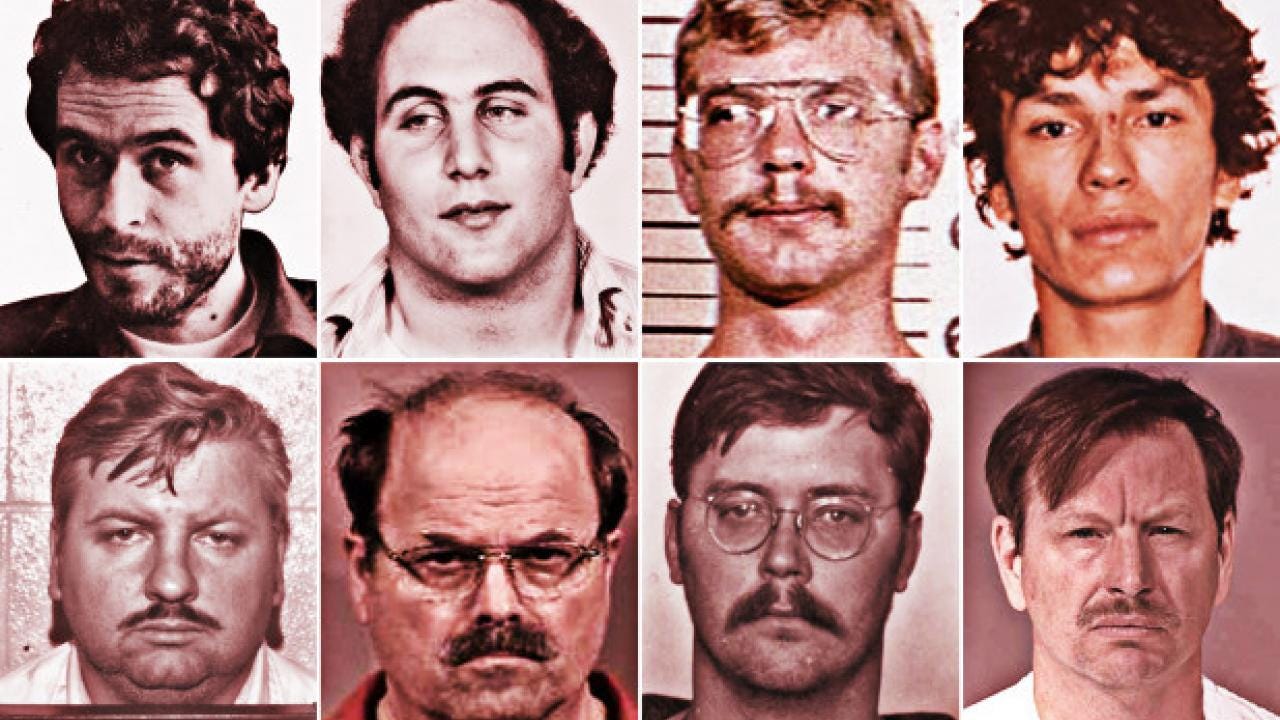The Psychology Behind America’s True Crime Craze
We're diving into the psychological reasons why people are drawn to true crime, including curiosity, fear, and the desire for justice.

Let’s dive into the psychological reasons behind America’s true crime craze and uncover why we are so enthralled by these dark, unsettling stories.
1. The Desire for Understanding and Control
One of the primary reasons true crime is so appealing is the human need for understanding. Crime, particularly violent or senseless crime, disrupts our sense of order in the world. When we hear about someone committing an unthinkable act, we naturally want to know why. What motivated them? What events led to this tragedy? By consuming true crime stories, we attempt to piece together the puzzle and make sense of the senseless.
Moreover, true crime gives us a feeling of control over what is otherwise chaotic and unpredictable. We may not be able to prevent crimes from happening, but by learning about them, we feel better equipped to protect ourselves. Understanding the psychology of criminals, the warning signs, and how justice is (or isn’t) served gives us a sense of agency in an unpredictable world.
2. The Thrill of Fear – But From a Safe Distance
It’s no surprise that true crime taps into our basic survival instincts, particularly our fear response. Humans are hardwired to be alert to danger, and true crime stories allow us to experience fear in a controlled environment. There’s a thrill in watching a dangerous situation unfold, as long as we know we’re not directly at risk.
Psychologists refer to this phenomenon as “benign masochism”—the enjoyment of something that would be unpleasant if it were happening to us, but is safe when experienced indirectly. Whether it’s watching a crime unfold on TV or listening to a chilling retelling of a murder on a podcast, true crime gives us a rush of adrenaline, engaging the same fight-or-flight response that kicks in during real-life danger. The key difference is that in this case, we get to experience it from the safety of our couch.
3. The Appeal of Justice and Resolution
In a world where we often feel powerless or uncertain, true crime offers the appeal of justice being served—at least, in some cases. While not every true crime story has a neat resolution, many of them conclude with the criminal being caught, tried, and punished. This sense of justice being restored can be deeply satisfying for viewers and listeners. It fulfills our innate desire for moral order and closure.
True crime also gives us a glimpse into the criminal justice system, allowing us to play armchair detectives. We analyze the evidence, follow the legal proceedings, and sometimes even try to solve the case ourselves. This sense of participation makes the experience even more engaging.
4. True Crime as a Morality Play
True crime stories often function as modern-day morality plays, where good and evil are clearly defined. They provide stark examples of what happens when people cross moral or ethical boundaries. These stories remind us of the consequences of bad behavior, reinforcing societal norms and values. The themes of guilt, innocence, justice, and punishment resonate on a deep, almost primal level.
For many, true crime serves as a way to affirm their own moral compass. By engaging with stories of criminals and their transgressions, we reinforce our own sense of right and wrong, positioning ourselves on the side of justice.
5. Curiosity About Human Behavior
Humans are naturally curious creatures, and few things pique our curiosity more than other people’s behavior—especially when that behavior deviates from the norm. True crime offers a window into the minds of criminals, allowing us to explore the darker sides of human nature. We want to know what drives someone to commit such horrific acts. Is it nature or nurture? Mental illness or calculated malice?
This desire to understand criminal behavior taps into our fascination with psychology, especially abnormal psychology. Many true crime stories delve into the motivations, backgrounds, and mental states of perpetrators, giving us insight into how their minds work. It’s like a real-world case study in the complexities of human behavior.
6. Escapism and Catharsis
Oddly enough, true crime can serve as a form of escapism. While it might seem counterintuitive to seek out stories of violence and murder to escape the stress of everyday life, true crime offers a way to channel our anxieties. In a strange way, it can be cathartic to confront the darkest aspects of humanity, as it puts our own worries into perspective.
By facing these intense emotions through a screen or speaker, we release some of our own pent-up tension. For some people, listening to or watching true crime can feel like a safe way to process their fears and anxieties.
7. Empathy and Connection to Victims
Another reason why true crime resonates so deeply is the connection we feel to the victims. Many true crime stories highlight the lives of those affected by crime, giving a voice to people who can no longer speak for themselves. As we learn about the victims’ stories, their hopes, dreams, and struggles, we develop empathy for them and their families.
This emotional connection is part of what makes true crime so compelling—it’s not just about the crime itself, but about the human lives that were impacted. These stories allow us to reflect on the fragility of life and the importance of justice.

